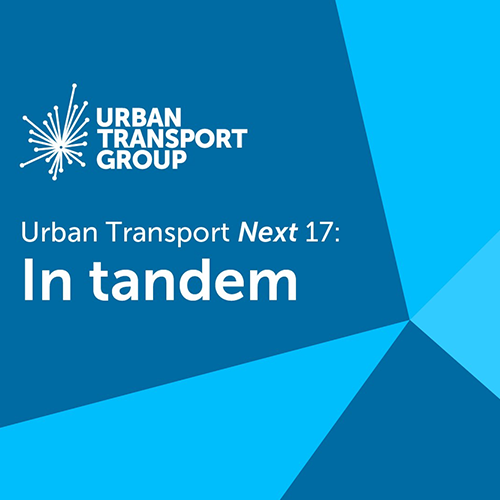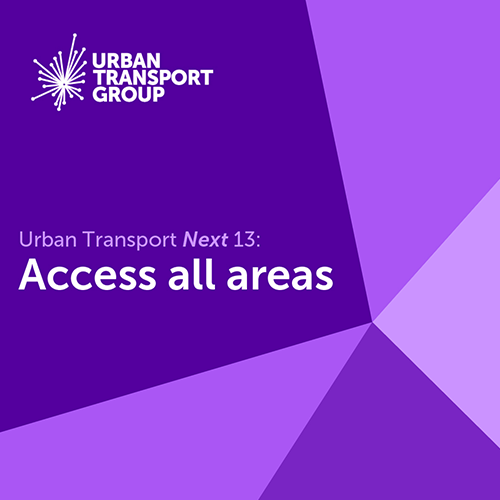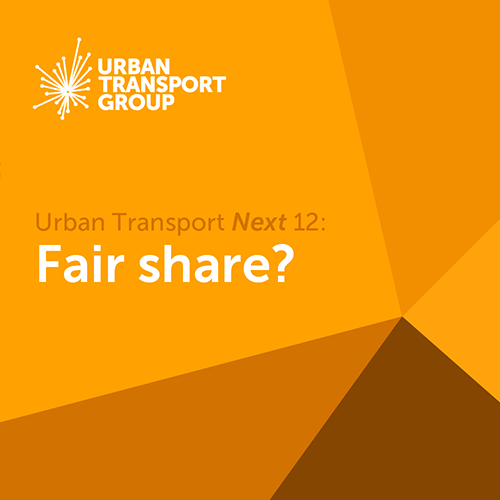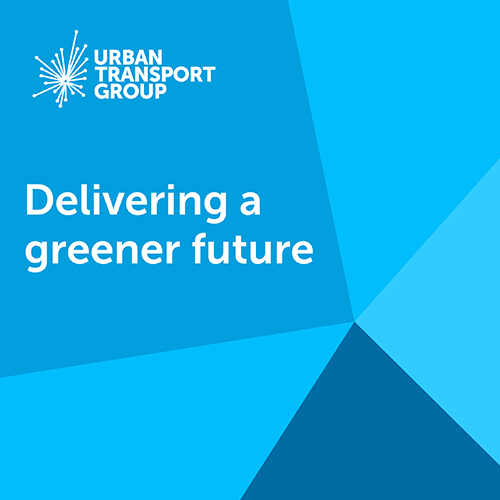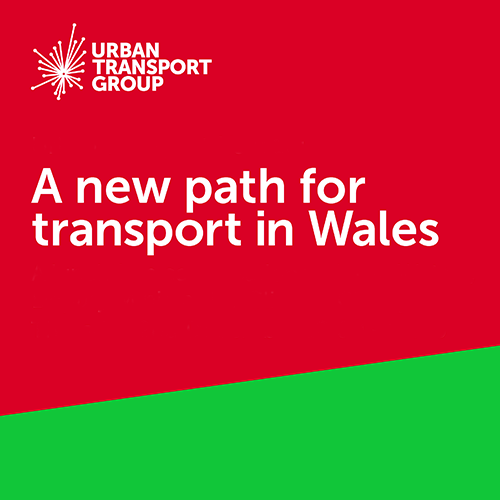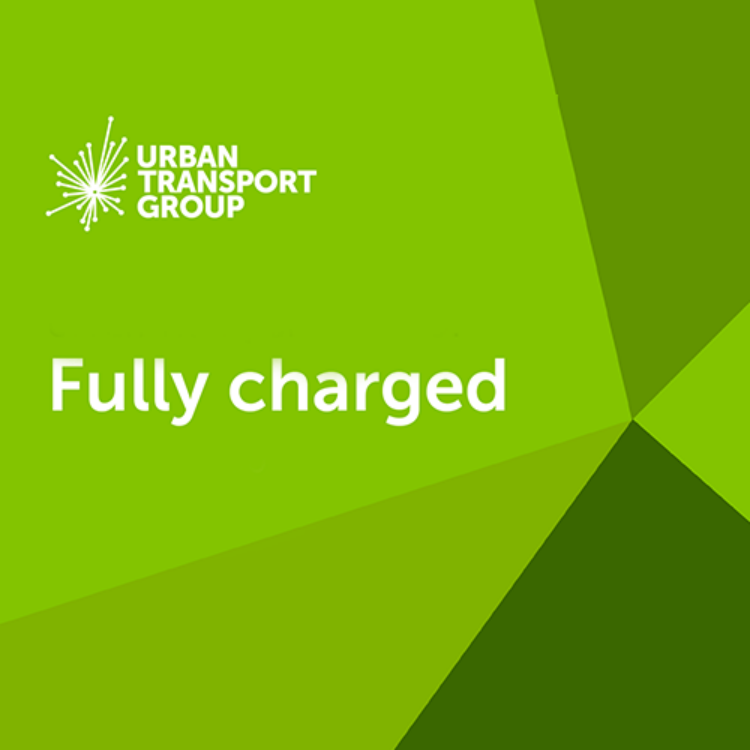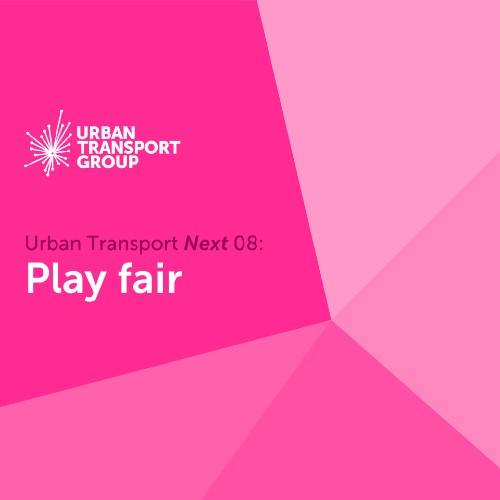Discover Urban Transport Next
Urban Transport Next

Urban Transport Next
Author: Urban Transport Group
Subscribed: 9Played: 22Subscribe
Share
© Copyright 2020 All rights reserved.
Description
Urban Transport Next brings together key thinkers and decision makers with a live audience for an in-depth conversation on the topics that will determine the future of urban transport.
26 Episodes
Reverse
In this episode, Simon Lightwood MP, the Minister for Roads and Buses, was in conversation with Jason Prince, Director of the Urban Transport Group. During the discussion, the Minister focused on the bus: highlighting the importance of buses during his childhood, outlining how the new Bus Services Act will impact services in England, and explaining the role of the bus in driving UK economic growth. The pair also spoke about the forthcoming Integrated National Transport Strategy, transport devolution, accessibility in transport, and micromobility.
In this episode, David Skaith, Mayor of York and North Yorkshire, was in conversation with Jason Prince, Director of the Urban Transport Group. In the wide-ranging discussion, the Mayor spoke about his experience of growing up in the region and his use of public transport; the importance of active travel schemes in York, Harrogate and other towns and rural areas: the role of rail; and how York and North Yorkshire is leading the way in many industries, including the manufacturing of zero emission buses.
In this episode, Claire Ward, Mayor of the East Midlands, was interviewed by Jason Prince, Director of the Urban Transport Group.
During the conversation, the Mayor outlined how the East Midlands region is geographically unique compared to other city regions in UTG membership, and the need to therefore 'think differently' on transport. The pair also discussed the approach to improving bus services in the East Midlands, why rail devolution is so important to the region, and the Mayor's focus on collaboration with communities on transport issues.
In this episode, Richard Parker, Mayor of the West Midlands, was in conversation with the freelance journalist Laura Laker. During the discussion, the Mayor spoke about his background and route into politics; his own experience of using public transport in the West Midlands; his plans for buses and trams in the region, and his 'duty' to tackle road safety. Urban Transport Next is supported by AtkinsRéalis.
In this episode, Kim McGuinness, North East Mayor, was in conversation with Julie Elliott, the former MP for Sunderland Central. In the wide-ranging discussion, the Mayor spoke about her experiences of using public transport growing up in the North East; her plans for franchising bus services and extending the Tyne and Wear Metro; improving safety for women and girls on the transport network; and how transport is an enabler - providing access to opportunities for all.
In this episode, Steve Rotheram, Mayor of the Liverpool City Region, was in conversation with Simone Roche MBE, founder of the We Are Power, Northern Power Women Awards, and PoWEr Up Collective CIC. During the discussion, the Mayor talked about the importance of the bus and the region's decision to franchise services; the pride he feels towards the new Merseyrail train fleet; making women and girls feel safer on transport networks; and the progress made on active travel in Liverpool City Region.
In this episode, Oliver Coppard, Mayor of South Yorkshire, was in conversation with Louisa Harrison-Walker, Chief Executive of the Sheffield Chamber of Commerce. During the discussion, the Mayor spoke about the potential opportunities that franchised bus services could bring, the challenges of meeting net zero targets and boosting active travel, and the rationale for bringing South Yorkshire’s tram network under public control.
In this episode, Tracy Brabin, Mayor of West Yorkshire, was in conversation with Juergen Maier, Vice-Chair of the Northern Powerhouse Partnership. During the discussion, the Mayor spoke about how devolution has given her the powers and funding to make change in the region, plans for mass transit in West Yorkshire, and the social importance of good bus networks.
In this special episode, Andy Burnham, Mayor of Greater Manchester, was in conversation with the journalist Laura Laker. During the discussion, the Mayor spoke about his vision for integrated transport through the Bee Network, Greater Manchester’s trailblazer devolution deal, air quality, and what he hopes to see from a future government. He also revealed his playlist for a long train journey and shared his desire for Liam Gallagher to lend his voice to ‘next stop’ announcements on transport in the city.
In this episode, our panel talked about how to increase diversity and inclusion in active travel and what barriers need to be broken down to do so. The conversation touched upon the inadequacy of data on different journeys made by different people, how the transport sector can do more to capture the diversity of perspectives, and the lack of long-term funding certainty. Our guests were Adam Tranter, West Midlands' Cycling & Walking Commissioner, Aneela McKenna, Founder of the Mòr Diversity EDI Consultancy, and Rachel Aldred, Professor of Transport and Director of Westminster University’s Active Travel Academy. They were interviewed by Rebecca Fuller, Assistant Director of the Urban Transport Group.
In this episode, our panel talked about how to accelerate progress on decarbonising transport, building on the competitive nature of city regions and their mayors to spur on action. The conversation covered examples where change is happening, from Manchester to Jakarta, the impact of carbon budgeting and the co-benefits of actions to reduce emissions from transport. Our guests were Caroline Watson, Programme Director of Transport at C40 Cities Climate Leadership Group and Jonathan Bray, Director of the Urban Transport Group. They were interviewed by Glenn Lyons, the Mott MacDonald Professor of Future Mobility at the University of West of England.
In this episode, our panel discussed how to create better streets for the future and how to remove the conflict from the competing demands for street space. The conversation touched upon how practitioners need to better anticipate the ‘messiness’ that comes with designing streets for multiple modes, users and purposes, and how technology and data can improve our understanding of what is going on at street level. Our guests were Peter Jones, Professor of Transport and Sustainable Development at the UCL Centre for Transport Studies and John Dales, Director of Urban Movement. They were interviewed by the event’s Chair, Nicola Kane, Head of Strategic Planning, Insight and Innovation at Transport for Greater Manchester.
In this episode, Dr Nicholas Falk, Executive Director of The URBED Trust, and Rebecca Fuller, Assistant Director at the Urban Transport Group, discussed how transport can shape a new, sustainable era for suburbs. Their conversation focused on the new Urban Transport Group report on this topic (The Good Life), and discussed how best to reduce emissions generating trips and car dependency, and make use of existing community to assets to ensure people can leave a more local life.
In this episode, renowned disability campaigners Alan Benson MBE and Dr Hannah Barham-Brown shared a conversation on how to transform transport accessibility. The pair discussed their own experiences of using transport and how that has shaped their views and their campaigning work. They also spoke of the need to involve disabled people from the earliest design stage of new transport services or infrastructure, and to learn from existing good practice and tools.
In this episode, our panel discussed how new transport modes offer the potential to enhance transport networks and attract the new users necessary to transition to net-zero. Drawing from a new Urban Transport Group and Arup report, they talked about how to make transport available, accessible, affordable and acceptable, and how to move away from the 'reference man' when designing transport systems. Our guests were Karla Jakeman of Innovate UK and Natalie Gravett of Arup. They were interviewed by Rachael Murphy, Scotland Director at CoMoUK.
In this episode, we looked at how innovations in freight can make our city regions greener, fairer, healthier and more prosperous places. Our panel discussed how climate change, the Covid pandemic and the emergence of new technology have changed the freight sector over recent years, and what support is needed so that freight can help city regions and national Government to achieve their decarbonisation targets and wider public policy goals.
Our guests were Maggie Simpson, Director General of the Rail Freight Group and Clare Linton, Policy and Research Advisor at Urban Transport Group. They were interviewed by transport expert Stephen Joseph.
In this episode, Lee Waters, Welsh Government Deputy Minister for Climate Change, was interviewed by Jonathan Bray, Director of the Urban Transport Group. Their conversation focused on how Wales is taking bold steps around transport in response to climate change. Lee was open about the challenges facing the country, particularly around road user changing and its plans for a default 20mph speed limit on residential roads, but also about the opportunities schemes like the South Wales Metro could deliver and the potential of active travel for modal shift and reducing emissions.
In this episode, we looked at the potential of e-bikes in the city regions. Our panel discussed what's holding the UK back on e-bikes (compared to its neighbours in Europe), the potential climate and health benefits of e-bikes, and what more can be done to encourage people to 'try before they buy' and remove the scepticism around e-bikes.
Our guests were Olga Anapryenka, Principal Consultant at Steer and a Co-Founder of the Women in Mobility UK network, and Roger Geffen, Policy Director at Cycling UK. They were interviewed by Phillip Darnton, Chairman of the Bicycle Association.
In this episode, we discussed how children’s independence, health and mobility has been steadily eroded over decades of car dominance, with the central question of ‘how do we put children at the heart of transport planning?’
The conversation touched up how and why children’s mobility has changed over time, and the impact this had had on children’s lives; what does the data (or lack of) tell us about where, how and why children travel today; and which cities are leading the way on becoming truly child friendly.
Our guests were Tim Gill, a global advocate for children’s outdoor play and mobility, and Lucy Marstran, Technical Lead for Walking and Cycling at Metis Consultants. They were interviewed by Rebecca Fuller, Assistant Director at the Urban Transport Group.
In this episode, Jo Field (Founder and Chief Executive JFG Communications and President, Women in Transport) interviewed Andy Byford, Commissioner of Transport for London, about his experiences since stepping into one of the transport sector's biggest jobs in 2020, in the middle of a global pandemic.
Jo explored how Andy has sought to steer his Transport for London team of 27 thousand direct employees, and another 60 thousand contracted employees through this difficult time. He talked about the need to bring people with you behind a shared vision and his ambition for the organisation to better reflect the communities it serves.
He discussed how London’s public transport can bounce back from its largest peacetime crisis and what TfL will need to do to support a green and just recovery for the capital from COVID-19.











